
The town is called Fukuyama now, but once upon a time it was Kusado Sengencho.
The first mental image many people have when they hear the words “history museum” is of a collection of artifacts inside sealed, climate-controlled glass exhibit booths. Sure, it provides a look into the past, but having a both literally and figuratively clear barrier can make it hard to feel a real connection to the present.
But the Fukuyama Kusado Sengen Museum, part of the Hiroshima Prefectural Museum of History complex, isn’t like most museums.
Long ago, the area was called Kusado Sengencho, a port village that flourished during the Muromachi period of Japan’s feudal samurai era. The community’s prosperity peaked in the 14th century, though, and the village became smaller and smaller, eventually becoming buried under sediment of the river it was built along.
室町時代の生活を再現した展示を観てきた。これは妄想の解像度があがる…🤤 pic.twitter.com/lN37VtTdN4
— 里村 (@stmr_dikr) February 14, 2021
Fast forward a few centuries, and the area became redeveloped as part of the growing town of Fukuyama, Hiroshima Prefecture. During a construction project in the Taisho period (1912-1926) workers found archeological remnants of Kusado Sengencho, and after extensive research by historians, a replica of the village, incorporating discovered artifacts, has been constructed at the museum, allowing visitors to walk around a faithfully rebuilt samurai-era village and market.
自分用資料に… pic.twitter.com/WzxTr1qUTl
— 里村 (@stmr_dikr) February 14, 2021
The permanent exhibit, called Yomigaeru Kusado Sengen (“The Return of Kusado Sengen”) has been open for some time, but it’s often overshadowed by Hiroshima Prefecture’s more famous travel destinations, such as Miyajima and Peace Memorial Park. Japanese Twitter user and Fukuyama native @stmr_dikr, though, has been coming to the museum since he was a child, and recently shared a collection of beautiful photos from his most recent visit.
— 里村 (@stmr_dikr) February 14, 2021
The village has machiya (traditional row houses), a dock, carpenter’s workshop, temple hall, and market, all built in accordance with architectural aspects of the Muromachi period. Some of the interiors are open to visitors as well, and include such classically rustic touches as traditional stoves and irori hearths.
— 里村 (@stmr_dikr) February 14, 2021
Something that might not be immediately apparent is that Yomigaeru Kusado Sengen is an indoor exhibit, with its layout and some other clever aesthetic techniques giving it the atmosphere of an outdoor space. Because of that, there’s no need to worry about the weather when you’re visiting.
▼ Black-and-white photography results in a serious Kurosawa-film vibe.
どの家屋も想像以上に天井が低くて、175cmの半助さんには窮屈だろうなあと… pic.twitter.com/0ZC8rwkTom
— 里村 (@stmr_dikr) February 14, 2021
夏の夕暮れ、という設定で展示を作ってあるそうで、ヒグラシの鳴く声が聞こえてきそうなリアルさでした pic.twitter.com/HjqeMertZA
— 里村 (@stmr_dikr) February 14, 2021
While @stmr_dikr is a long-time fan, Yomigaeru Kusado Sengen remains relatively unknown, and he says that on many of his visits he’s practically got the whole place to himself. It’s also located right across the street from Fukuyama Station (which is a Shinkansen stop between Hiroshima and Osaka) and admission is just 290 yen (US$2.80), making this one of the most convenient, affordable walks into samurai-era history there is.
Museum information
Fukuyama Kusado Sengen Museum (Hiroshima Prefectural Museum of History) / ふくやま草戸千軒ミュージアム(広島県立歴史博物館)
Address: Hiroshima-ken, Fukuyama-shi, Nishimachi 2-4-1
広島県福山市西町2丁目4−1
Open 9 a.m.-5 p.m.
Closed Mondays (or next non-holiday weekday if Monday is a holiday), December 28-January 1, February 2-5, and June 9-14
Website
Sources: Twitter/@stmr_dikr via IT Media, Fukuyama Kusado Sengen Museum
Top image: Twitter/@stmr_dikr
Insert images: Twitter/@stmr_dikr (1, 2, 3, 4, 5)
● Want to hear about SoraNews24’s latest articles as soon as they’re published? Follow us on Facebook and Twitter!
Follow Casey on Twitter, where he strongly recommends the Mario Dessert cake shop inside Fukuyama Station.

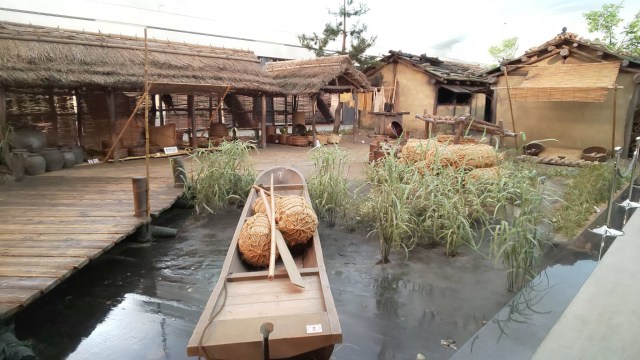
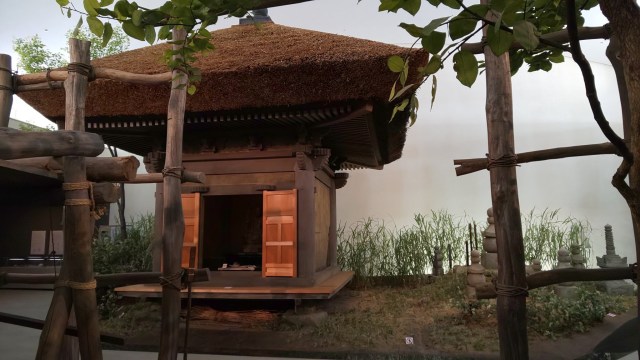
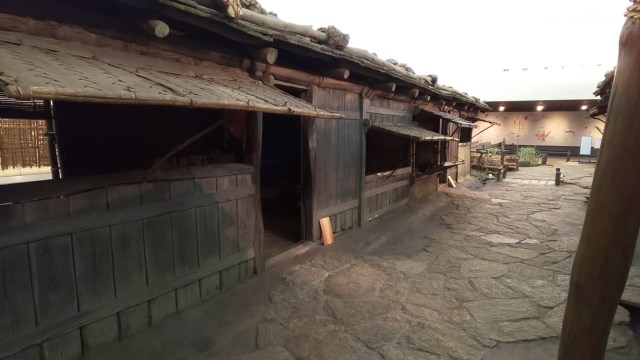
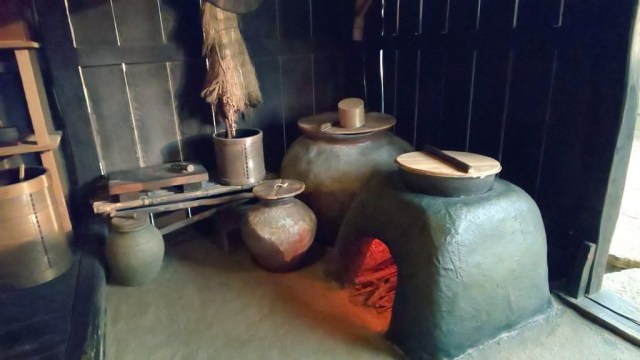
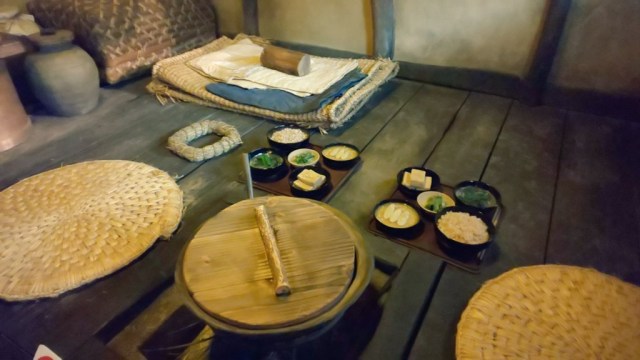
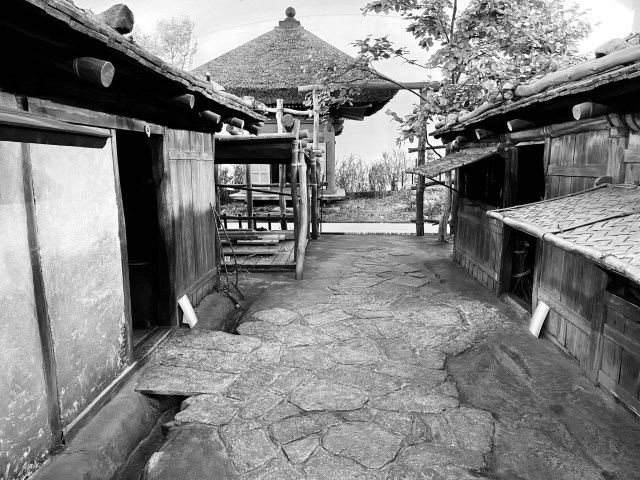
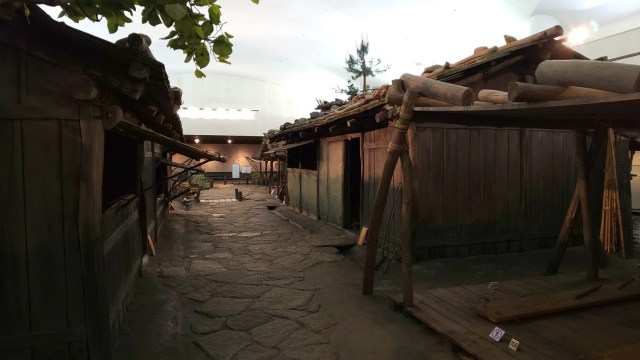
 It’s like the samurai era never ended at this beautiful Japanese mountain town
It’s like the samurai era never ended at this beautiful Japanese mountain town There’s a new museum in Japan, but almost all of its location is a secret
There’s a new museum in Japan, but almost all of its location is a secret Japan Extreme Budget Travel! A trip from Tokyo to Izumo for just 30,000 yen [Part 1]
Japan Extreme Budget Travel! A trip from Tokyo to Izumo for just 30,000 yen [Part 1] Japan has only one airport named after a samurai, so let’s check out Kochi Ryoma【Photos】
Japan has only one airport named after a samurai, so let’s check out Kochi Ryoma【Photos】 Saitama is home to the best strawberries in Japan that you’ve probably never even heard of
Saitama is home to the best strawberries in Japan that you’ve probably never even heard of Family Mart’s Shibuya Cat Street shop hosts first-ever rescue cat photo exhibition for Cat Day
Family Mart’s Shibuya Cat Street shop hosts first-ever rescue cat photo exhibition for Cat Day Skyscraper sized Pokémon cards to appear in Tokyo all year long in Tocho projection mapping event
Skyscraper sized Pokémon cards to appear in Tokyo all year long in Tocho projection mapping event Burning through cash just to throw things away tops list of headaches when moving house in Japan
Burning through cash just to throw things away tops list of headaches when moving house in Japan Japan’s Super Colossal Mega Parfait is so freakishly huge it comes in a beer pitcher【Taste test】
Japan’s Super Colossal Mega Parfait is so freakishly huge it comes in a beer pitcher【Taste test】 Foreign tourists in Japan will get free Shinkansen tickets to promote regional tourism
Foreign tourists in Japan will get free Shinkansen tickets to promote regional tourism Experience the “Color of Water” from a 250-year-old Japanese confection maker!
Experience the “Color of Water” from a 250-year-old Japanese confection maker! Pikachu/Game Boy manhole cover installed at Nintendo Museum, not viewable by general public
Pikachu/Game Boy manhole cover installed at Nintendo Museum, not viewable by general public The 10 most annoying things foreign tourists do on Japanese trains, according to locals
The 10 most annoying things foreign tourists do on Japanese trains, according to locals Starbucks Japan releases new sakura goods and drinkware for cherry blossom season 2026
Starbucks Japan releases new sakura goods and drinkware for cherry blossom season 2026 Is Sapporio’s Snow Festival awesome enough to be worth visiting even if you hate the snow? [Pics]
Is Sapporio’s Snow Festival awesome enough to be worth visiting even if you hate the snow? [Pics] Japan has trams that say “sorry” while they ride around town…but why?
Japan has trams that say “sorry” while they ride around town…but why? Tokyo Skytree turns pink for the cherry blossom season
Tokyo Skytree turns pink for the cherry blossom season Highest Starbucks in Japan set to open this spring in the Tokyo sky
Highest Starbucks in Japan set to open this spring in the Tokyo sky Japan’s new “Cunte” contact lenses aren’t pronounced like you’re probably thinking they are
Japan’s new “Cunte” contact lenses aren’t pronounced like you’re probably thinking they are Shibuya Station’s Hachiko Gate and Yamanote Line stairway locations change next month
Shibuya Station’s Hachiko Gate and Yamanote Line stairway locations change next month Yakuzen ramen restaurant in Tokyo is very different to a yakuza ramen restaurant
Yakuzen ramen restaurant in Tokyo is very different to a yakuza ramen restaurant Starbucks Japan adds new sakura Frappuccino and cherry blossom drinks to the menu
Starbucks Japan adds new sakura Frappuccino and cherry blossom drinks to the menu Japan’s newest Shinkansen has no seats…or passengers [Video]
Japan’s newest Shinkansen has no seats…or passengers [Video] Foreigners accounting for over 80 percent of off-course skiers needing rescue in Japan’s Hokkaido
Foreigners accounting for over 80 percent of off-course skiers needing rescue in Japan’s Hokkaido Super-salty pizza sends six kids to the hospital in Japan, linguistics blamed
Super-salty pizza sends six kids to the hospital in Japan, linguistics blamed Starbucks Japan unveils new sakura Frappuccino for cherry blossom season 2026
Starbucks Japan unveils new sakura Frappuccino for cherry blossom season 2026 Take a trip to Japan’s Dododo Land, the most irritating place on Earth
Take a trip to Japan’s Dododo Land, the most irritating place on Earth Naruto and Converse team up for new line of shinobi sneakers[Photos]
Naruto and Converse team up for new line of shinobi sneakers[Photos] Is China’s don’t-go-to-Japan warning affecting the lines at a popular Tokyo gyukatsu restaurant?
Is China’s don’t-go-to-Japan warning affecting the lines at a popular Tokyo gyukatsu restaurant? Survey asks foreign tourists what bothered them in Japan, more than half gave same answer
Survey asks foreign tourists what bothered them in Japan, more than half gave same answer Japan’s human washing machines will go on sale to general public, demos to be held in Tokyo
Japan’s human washing machines will go on sale to general public, demos to be held in Tokyo Starbucks Japan releases new drinkware and goods for Valentine’s Day
Starbucks Japan releases new drinkware and goods for Valentine’s Day We deeply regret going into this tunnel on our walk in the mountains of Japan
We deeply regret going into this tunnel on our walk in the mountains of Japan Studio Ghibli releases Kodama forest spirits from Princess Mononoke to light up your home
Studio Ghibli releases Kodama forest spirits from Princess Mononoke to light up your home Major Japanese hotel chain says reservations via overseas booking sites may not be valid
Major Japanese hotel chain says reservations via overseas booking sites may not be valid Put sesame oil in your coffee? Japanese maker says it’s the best way to start your day【Taste test】
Put sesame oil in your coffee? Japanese maker says it’s the best way to start your day【Taste test】 No more using real katana for tourism activities, Japan’s National Police Agency says
No more using real katana for tourism activities, Japan’s National Police Agency says